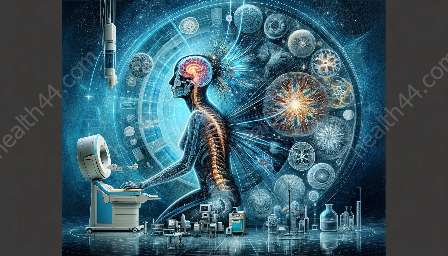Artificial intelligence (AI) has made significant strides in revolutionizing various industries and has now made a profound impact on radiologic technology and the field of radiology. The integration of AI with radiology has led to advancements in diagnostic accuracy, image analysis, and patient care. This article discusses the remarkable applications of AI in radiologic technology, highlighting its potential to transform the way radiologists diagnose and treat patients.
AI-Powered Image Analysis and Diagnosis
One of the most prominent applications of AI in radiologic technology is in image analysis and diagnosis. AI algorithms are capable of processing and interpreting medical images, such as X-rays, CT scans, and MRIs, with remarkable accuracy and efficiency. These AI-based image analysis systems can detect abnormalities, lesions, and other indicators of disease, aiding radiologists in making more accurate diagnoses.
Advanced Interpretation and Pattern Recognition
By leveraging AI, radiologists can benefit from advanced interpretation tools that assist in recognizing patterns and anomalies in medical images. AI algorithms are trained to identify subtle changes and abnormalities that may go unnoticed by human observers, thereby improving the overall diagnostic process. This enhanced pattern recognition can lead to earlier detection of diseases and medical conditions, ultimately improving patient outcomes.
Personalized Treatment Planning
AI's impact on radiologic technology extends to personalized treatment planning for patients. With the integration of AI, radiologists can leverage advanced predictive modeling and analytics to tailor treatment plans based on individual patient characteristics and disease profiles. This personalized approach can optimize treatment outcomes and minimize the risk of adverse effects, ultimately leading to improved patient care.
AI-Driven Workflow Optimization
AI has the potential to streamline and optimize the workflow of radiologic technology departments. Through automated image processing, prioritization of cases, and integration with electronic health records, AI can improve the efficiency of radiology practices. This not only enhances the productivity of radiologists but also contributes to reducing turnaround times for diagnostic reports, leading to better patient management and care.
Enhanced Automation and Efficiency
Integration of AI in radiologic technology brings about enhanced automation and efficiency in various aspects of radiology. AI-powered systems can automate repetitive tasks, such as image segmentation, measurements, and report generation, allowing radiologists to focus more on complex cases and patient interactions. This automation not only saves time but also reduces the potential for human errors, thereby improving the overall quality of radiologic services.
Future Innovations and AI-Driven Research
As AI continues to evolve, its impact on radiologic technology is poised to drive further innovations and advancements in the field of radiology. AI-driven research holds the potential to uncover new insights, predictive markers, and treatment strategies that can revolutionize the way diseases are diagnosed and managed. With AI's ability to analyze vast amounts of imaging and clinical data, the future of radiology holds promises of more accurate, efficient, and personalized patient care.
Challenges and Considerations
While the integration of AI in radiologic technology presents numerous opportunities, it also comes with its set of challenges and considerations. The ethical use of AI in radiology, data privacy, interpretation accuracy, and the need for ongoing training and education are crucial factors that require careful attention. Overcoming these challenges is essential to harnessing the full potential of AI in radiologic technology and ensuring its responsible and effective implementation.
Conclusion
The application of artificial intelligence in radiologic technology represents a transformative force in the field of radiology. From AI-powered image analysis and diagnosis to personalized treatment planning and workflow optimization, AI's impact on radiologic technology demonstrates its potential to revolutionize patient care and the radiology practice. As AI continues to advance, it holds the promise of driving further innovations and shaping the future of radiologic technology, ultimately advancing the field of radiology for the benefit of patients and healthcare providers.


